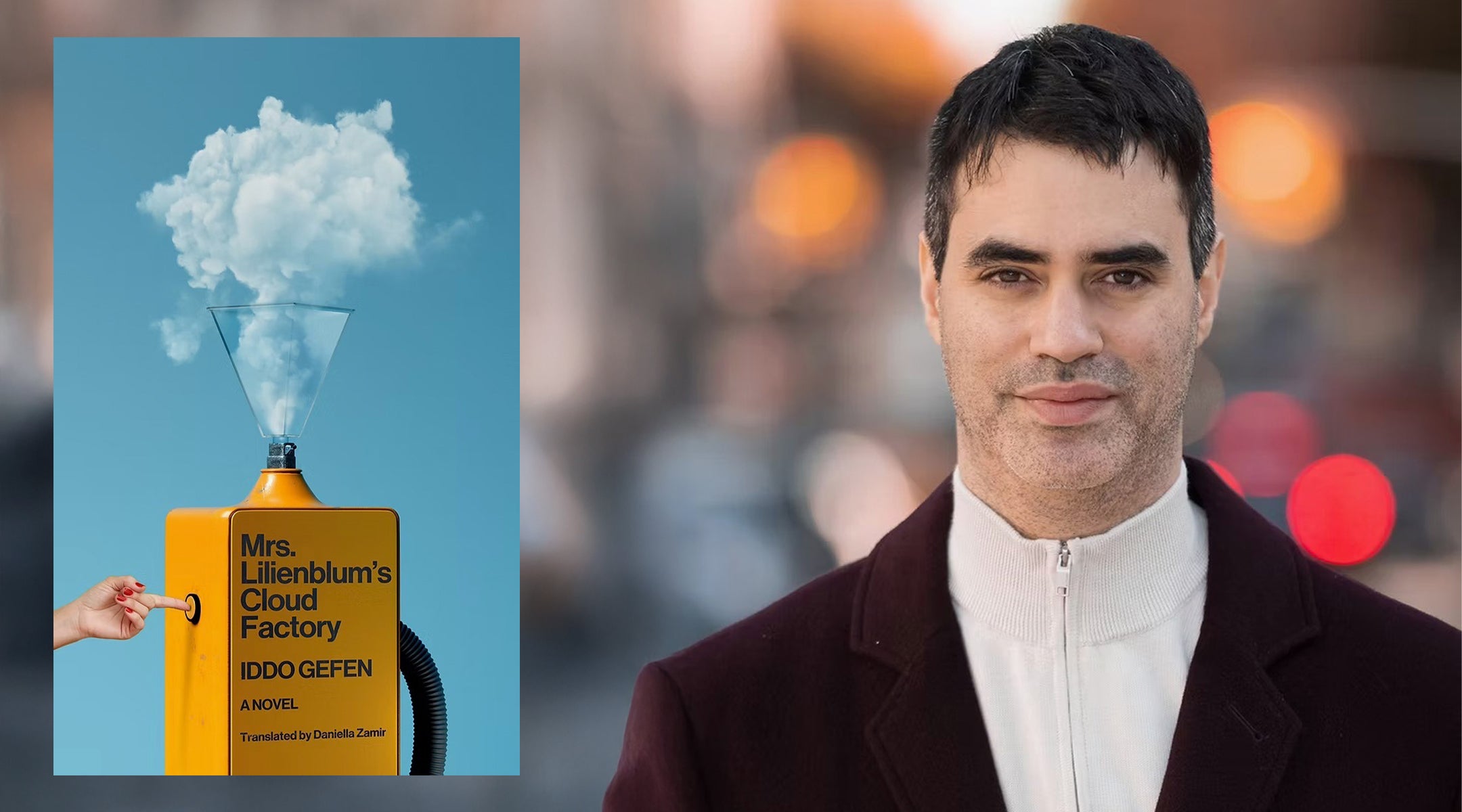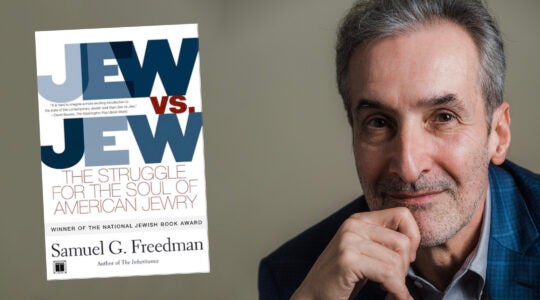I’m reading a new novel by an Israeli author that has nothing to do with the war in Gaza, or any current crisis for that matter.
I can’t tell if I feel relieved or guilty. With a world in turmoil, how much permission can I give myself to tune out — if tuning out is even possible?
Iddo Gefen’s “Mrs. Lilienblum’s Cloud Factory” is set in a village on the lip of a crater deep in the Negev Desert — far from the bright lights of Tel Aviv and even Beersheba. When the family matriarch invents a machine that creates custom rain clouds, her family sees a way out of their thwarted lives in an Israeli backwater. With the help of an eccentric local investor, they expand mom’s home workshop into a full-fledged R&D lab and attract the interest of a famous venture capitalist. The subplots include a missing hiker, a budding romance and even a touch of larceny.
The book is both a family drama and a gentle satire of Israel’s high-tech sector. One reviewer praised its “spirited whimsy.” And “although it’s not set far from the Gaza border,” as Haaretz notes in a profile of the author, the novel “unfolds far from war-related headlines.”
“Summer reading” is big business. One camp holds that the ideal “beach read” is fat and frothy, heavy on plot and action and light on whatever it is that makes a novel “literary.” Others like to take on an overlooked classic or a nonfiction doorstop. Either way, there is a sense that summer fare should take you out of the moment — the way summer itself promises a break from the routines of the rest of the year.
“We go away because we need to relax and recharge,” writes Daisy Buchanan, author of “Read Yourself Happy.” “A holiday is supposed to have health benefits. And reading might be the magical secret that ensures we feel those benefits. It’s one way to truly get away from it all.”
This summer I’ve tried to get away from it all, I really have. But the real world keeps finding me, like an aggressive mosquito, or worse, a persistent summer cold. My phone constantly buzzes with disturbing headlines out of Washington, and the TV delivers the latest bad news in Gaza. Summer reading feels less like a pleasant distraction than burying my head in the sand — and worse, an abdication of who I am supposed to be as a citizen and a Jew.
Judaism itself seems to discourage the kind of escapism that summer reading is supposed to promise. “Every ritual, every command, every syllable of the Jewish story is a protest against escapism, resignation and the blind acceptance of fate,” wrote the late Rabbi Jonathan Sacks, who I hope found a way to relax a little in the summers.
In the northern hemisphere, meanwhile, tradition drops a lengthy period of mourning right in the middle of the wet, hot summer. Tisha B’Av, the 25-hour fast commemorating the fall of the Temples and other historical calamities, starts this year on Aug. 2. It is preceded by a month-long series of increasing restrictions based on Jewish mourning customs.
This year, anyway, Tisha B’Av ritualizes what many Jewish are already feeling. Ask a Jewish friend how they’re feeling these days and you are likely to hear, “Personally? Not bad. Globally? Oy.” The domestic news seems like a nearly hourly call to outrage , while the crisis in Israel demands a caring person’s attention, whether it is the death toll in Gaza, the killing of Israeli soldiers or the continuing captivity of the hostages. It’s a time for action, not losing yourself in the pages of a thriller or a romance.

Sami Rohr prize winner Iddo Gefen’s debut novel is about a tech startup that turns sand into rain clouds. (Penguin Random House)
It turns out that Gefen has similar qualms: His book, after all, was first published in Hebrew in 2023, well before the Oct. 7 Hamas attacks. “It’s a bit of a weird feeling being out in the world with a book that was published in the U.S. after Oct. 7, but in so many ways is not reflecting it,” he told me on Wednesday. “Honestly, I wouldn’t write the same book” during the war.
Gefen, who is also a doctoral student in cognitive neuroscience at Columbia University, feels remorse at times for living outside of Israel during the war. But that doesn’t mean he has been able to escape its impact. Last year’s anti-Israel demonstrations at Columbia prompted him to write an essay for the Atlantic about his best friend, Maj. Sagi Golan, who was killed on Oct. 7 while defending Kibbutz Be’eri.
“When I see the words by any means necessary” written on a protester’s sign, wrote Gefen, “I think about Sagi: my best friend, whom I knew since sixth grade, the funniest and kindest person I have ever met.”
“Mrs. Lilienblum’s Cloud Factory” also includes a coded tribute to his fallen friend: It is dedicated to “General Luciano Rodríguez Ancelotti II,” a character in the book created by another character in the book. It is also the name of a character that Gefen and his fallen friend Sagi invented in high school.
Gefen said he wanted to honor the playful side of his friend. “He was a brave soldier that defended people and lost his life for it, but he was also this very fun, funny guy who liked making jokes, and there was much more complexity to his humanity in many ways,” he said.
“Mrs. Lilienblum’s Cloud Factory” is also a reminder of such complexity — that there are other Israeli stories to be told beyond war and strife. After talking to Gefen, who combines a gift for storytelling with a scientist’s interest in human emotions, I was almost ready to relax.
“People have a lot of guilt in the sense that you feel you can’t enjoy anything after everything that’s happening, because who are you to enjoy being in a cafe while there’s a horrible war,” said Gefen. “And yet sometimes, that’s the way of dealing with this horrible reality we’re facing now.
“And if that gives you the strength to come back and address these things, then sometimes one needs to — I don’t know — read a book that is not completely related to the topic.”
JTA has documented Jewish history in real-time for over a century. Keep our journalism strong by joining us in supporting independent, award-winning reporting.







